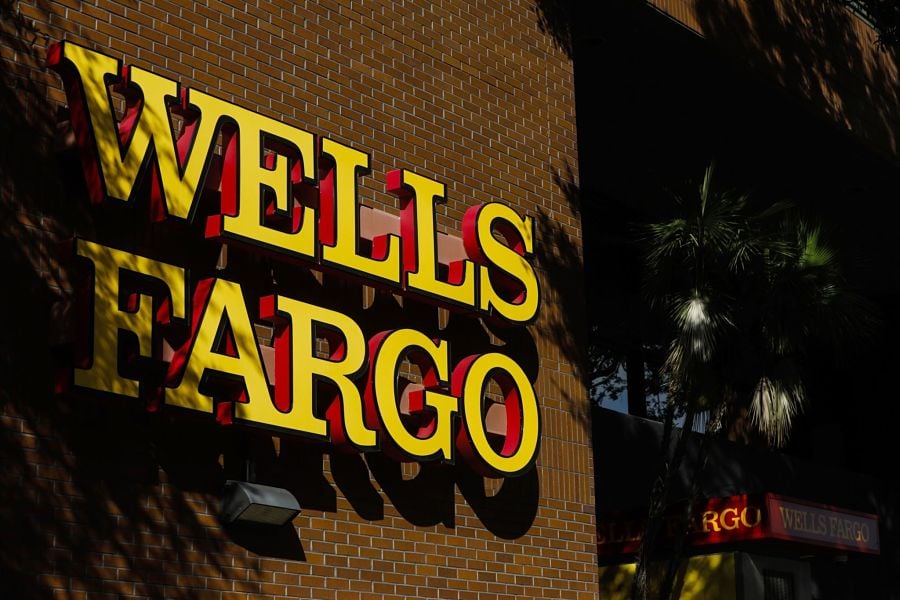

Wells Fargo Advisors agreed to pay $7 million to settle SEC charges that it failed to report customer transactions that could involve money laundering, the agency announced Friday.
In its order, the Securities and Exchange Commission alleged that the broker-dealer arm of Wells Fargo & Co. didn’t file in a timely manner 34 suspicious activity reports between April 2017 and October 2021.
The SEC said the firm failed to monitor, detect and report transactions in customer brokerage accounts involving wire transfers to and from foreign countries that were deemed high risk for being possible conduits to hide money that could support terrorism and other illicit activities.
“When SEC registrants like Wells Fargo Advisors fail to comply with their AML obligations, they put the investing public at risk because they deprive regulators of timely information about possible money laundering, terrorist financing, or other illegal money movements," Gurbir S. Grewal, director of enforcement at the SEC, said in a statement. "Through this enforcement action, we are not only holding Wells Fargo Advisors accountable, but also sending a loud and clear message to other registrants that AML obligations are sacrosanct."
Wells Fargo Advisors is the latest firm to run afoul of the SEC on money laundering. Last October, the agency reached a $4.8 million settlement with LPL Financial on alleged AML violations.
The SEC order said Well Fargo Advisors had made efforts to remediate the problems it has had tracking and reporting possible AML transactions. The firm neither admitted nor denied the SEC’s findings.
“At Wells Fargo Advisors, we take regulatory responsibilities seriously,” spokesperson Jackie Knolhoff said in a statement. “This matter refers to legacy issues that impacted a transaction monitoring system and the issues were resolved promptly upon discovery.”
Friday’s action was the second time the SEC has taken action against Wells Fargo Advisors on money laundering charges in the last five years. In 2017, the agency charged the firm with late filings of at least 50 SARs. Broker-dealers are required to file SARs under the Bank Secrecy Act and Treasury Department regulations.
The SEC alleged that Wells Fargo Advisors insufficiently implemented a new anti-money-laundering system in 2019 and failed to investigate 1,708 suspicious brokerage transactions between January and September of that year. That led to a failure to file 25 SARs.
In addition, the SEC alleged that between April 2017 and October 2021, Wells Fargo Advisors failed to file an additional nine SARs on time because it didn't process wire transfer data appropriately.
The tardy SARs were filed an average of 157 days late, and at least seven were filed more than 200 days late, according to the SEC order. The monetary value of the wire transfers targeted in the reports ranged from $29,980 to $2.5 million and involved at least eight high-risk countries.

Catch-up contributions, required minimum distributions, and 529 plans are just some of the areas the Biden-ratified legislation touches.

Following a similar move by Robinhood, the online investing platform said it will also offer 24/5 trading initially with a menu of 100 US-listed stocks and ETFs.

The private equity giant will support the advisor tech marketing firm in boosting its AI capabilities and scaling its enterprise relationships.

The privately backed RIA's newest partner firm brings $850 million in assets while giving it a new foothold in the Salt Lake City region.

The latest preliminary data show $117 billion in second-quarter sales, but hints of a slowdown are emerging.
Orion's Tom Wilson on delivering coordinated, high-touch service in a world where returns alone no longer set you apart.
Barely a decade old, registered index-linked annuities have quickly surged in popularity, thanks to their unique blend of protection and growth potential—an appealing option for investors looking to chart a steadier course through today's choppy market waters, says Myles Lambert, Brighthouse Financial.
